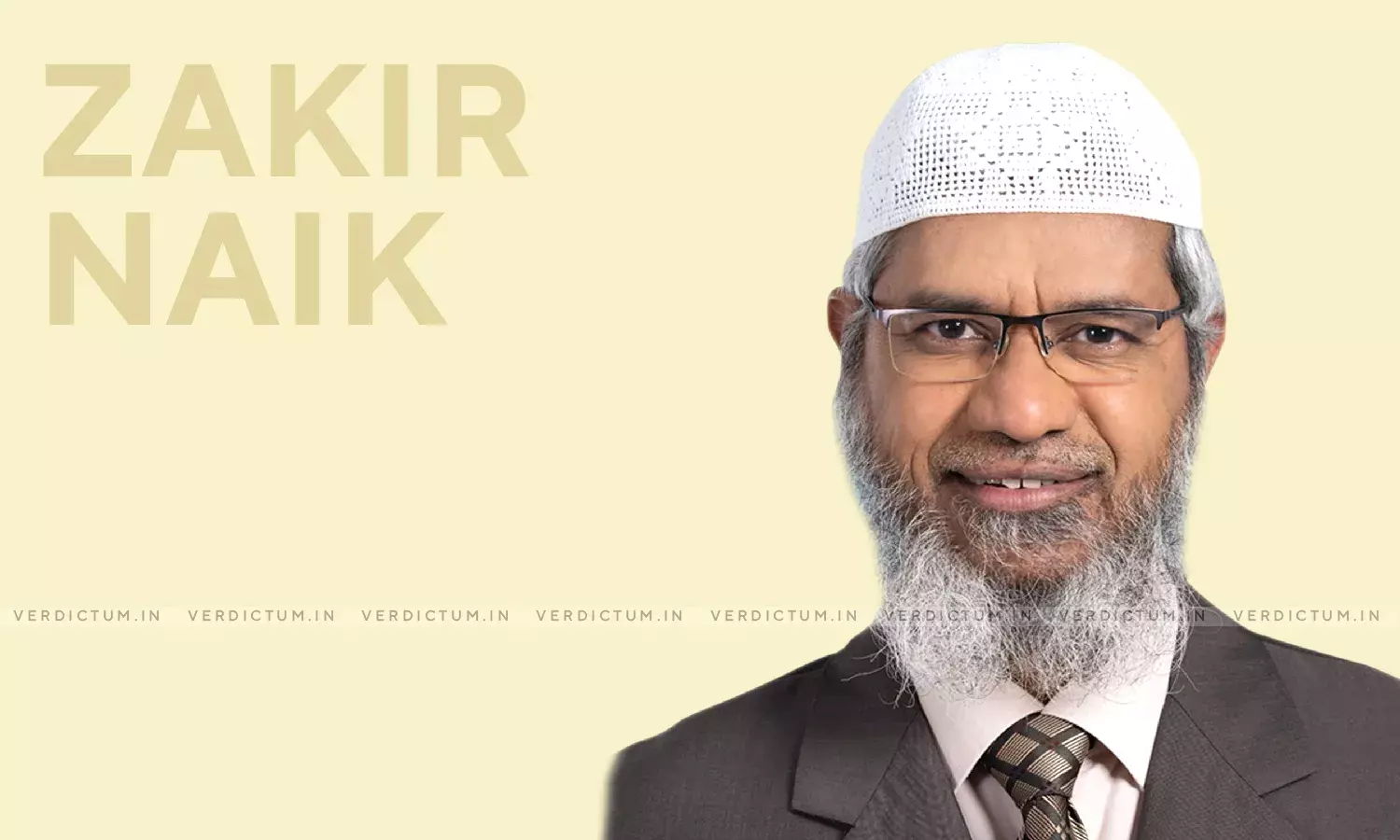UAPA Tribunal Directs Zakir Naik To File Vakalatnama Via Indian Embassy In Malaysia After Center Objects
A tribunal set up under the Unlawful Activities (Prevention) Act (UAPA) on Friday directed Islamic Research Foundation (IRF) trustee Zakir Naik, who is absconding, to file a fresh vakalatnama through the Indian embassy in Malaysia after the verification of his signatures.
The tribunal was conducting proceedings to consider the Centre's decision to declare the IRF as an unlawful association.
The one-member UAPA tribunal of Delhi High Court Chief Justice D N Patel said, "We hereby direct Dr Zakir Abdul Karim Naik to file his vakalatnama in accordance with the decision of the Supreme Court.... His vakalatnama be filed through the Indian embassy in Malaysia after proper verification of his signatures."
The tribunal's direction came after Solicitor General Tushar Mehta, who represented the Centre in the matter, raised objection over the vakalatnama filed by Naik, saying it was filed in violation of a Supreme Court judgment.
Mehta contended that someone has to carry out the verification that the signature upon the vakalatnama of Naik, who claims to be a trustee of the IRF, is indeed his.
He said that Naik is an absconding accused and has filed the vakalatnama without any verification by the Indian embassy in Malaysia.
The Counsel for the IRF submitted that he was not in a position to verify the signatures of Naik.
The tribunal also directed the Centre to file a list of witnesses and examination-in-chief before the next date of hearing on February 10.
The tribunal had, on December 20 last year, sought Naik's stand in the proceedings to consider the Centre's decision to declare the IRF as an unlawful association.
On November 15 last year, the Centre had declared the IRF as an unlawful association for five years, saying it has been indulging in activities that are prejudicial to the security of the country and have the potential of disturbing peace and communal harmony and disrupting the secular fabric of the country.
"The central government is of the opinion that the IRF and its members, particularly the founder and president of the IRF, Dr Zakir Abdul Karim Naik alias Dr Zakir Naik, has been encouraging and aiding its followers to promote or attempt to promote, on grounds of religion, disharmony or feelings of enmity, hatred or ill-will between different religious communities and groups, which is prejudicial to the integrity and security of the country," the Ministry of Home Affairs said in its notification.
The Centre had emphasised that the statements and speeches made by Naik were objectionable, subversive, promoted hatred amongst different religious groups and inspired the youngsters of a particular religion in India and abroad to commit terrorist acts.
The Centre had opined that if the unlawful activities of the IRF were not curbed and controlled immediately, it would continue with its subversive activities and re-organise its absconding activists, create communal disharmony, propagate anti-national sentiments, escalate secessionism by supporting militancy and undertake activities that are prejudicial to the sovereignty, integrity and security of the country.
"In exercise of the powers conferred by sub-sections (1) and (3) of section 3 of the Unlawful Activities (Prevention) Act, 1967 (37 of 1967), the central government hereby declares the Islamic Research Foundation (IRF) as an unlawful association and directs that this notification shall, subject to any order that may be made under section 4 of the said Act, have effect for a period of five years from the date of its publication in the Official Gazette," the Centre had stated.
Pursuant to section 5(1) of the Unlawful Activities (Prevention) Act, 1967, the Centre had, on December 13 last year, constituted the tribunal "for the purpose of adjudicating whether or not there is sufficient cause for declaring the Islamic Research Foundation as an unlawful association".
The IRF was declared as an unlawful association in November 2016 and the same was confirmed by a UAPA tribunal in May 2017.
With PTI inputs




